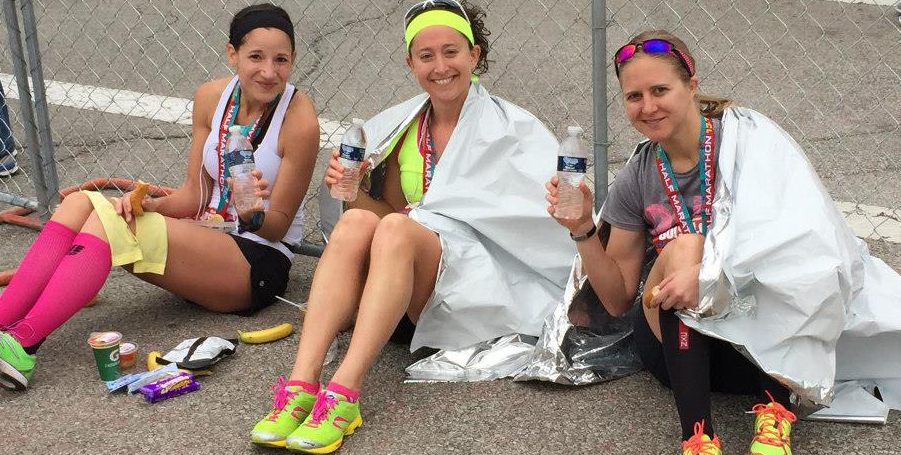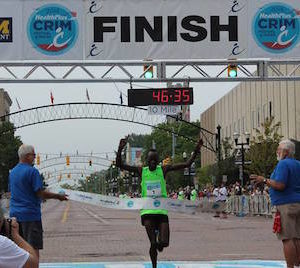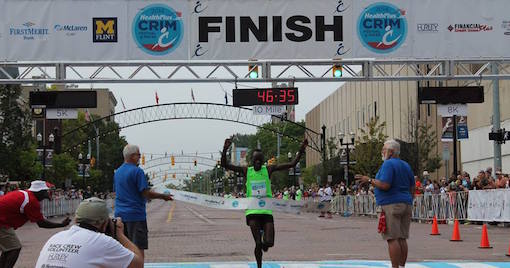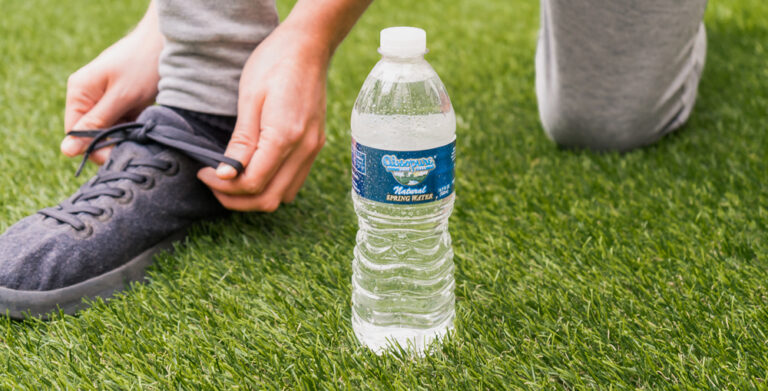Absopure
(un)Filtered

Race Day Nutrition Tips
You know what they say: You are what you eat. We believe this to be true, especially for runners before and on the day of a big race. Your performance depends on what you put into your body leading up to a race, no matter how many weeks and miles you devoted to training.
Whether you’re training for a 10-mile run or the Detroit Free Press Marathon (one of our favorite races to run before the end of the year!), race day nutrition is of the utmost importance. We turned to three of our expert partners for healthy tips and advice so you feel and perform your best on race day.
Week Before the Race
“Try things out before training runs and see how it effects your run the next day. It will give you a good idea for your body’s best fueling needs. If you’re unsure, keep it simple. Avoid new foods and foods that could potentially upset your stomach.” – Mona Langenberg, Go! St. Louis
“Race nutrition is such a personal thing. Runners really need to experiment during training to see what works best for them and stick to that plan on race day. I typically abstain from any caffeinated or alcoholic beverages in the week leading up to the race, as they tend to cause dehydration and poor performance.” – Betsy Moats, The Everyday Warrior
“What you eat before and on race day is up for personal interpretation, but I suggest trying a trial run of your race while you’re still training to see what works best for you.” – Rebecca Coleman, Priority Health
Day Before the Race
“Avoid new foods and heavy meal choices. Some runners swear by carb-loading, and others claim that protein-rich choices are better. Either way, eat what you’re used to and what feels comfortable for you. Stick to complex carbohydrates the day before the race, like oatmeal, toast, and bananas.” – Mona Langenberg, Go. St. Louis
“Some runners like carb-loading the day before, or even a few days before a big race, by eating pasta or something similar. I like to stick to my usual diet, personally. I try to ensure I’m getting an adequate water intake before the race, too.” – Betsy Moats, The Everyday Warrior
“It’s hard to perform well when your glycogen storage has been depleted. I recommend eating a heavier lunch the day before the race, like a carb-loading meal, because it helps store extra glycogen in the muscles, which can help avoid burnout and increase performance. Try eating a lighter dinner, and avoid foods that will cause gastrointestinal distress. Common culprits are spicy foods and foods high in fat and fiber. I always tell people to not eat anything new before race day. If you don’t normally eat certain things, ingesting it before a race isn’t the best idea.” – Rebecca Coleman, Priority Health
Taking Gels During the Race:
“If the race is longer than a 10K, or you’re going to be out there for more than an hour, it’s a good idea to have something. Again, practice in training. There are many choices in this department, so it’s really about what sits best in your stomach and what flavors you like best. Many runners like gels because they’re small and easy to carry, but I personally prefer the chews. They may be a bit bulkier to carry with you, but they taste more like gummy candy!” – Mona Langenberg, Go. St. Louis
“I use gels for half marathons, usually one gel every 30 to 45 minutes, and don’t take anything for distances less than that. I’ll sometimes use sports beans towards the end of the race if I need an extra boost but I’m not good at chewing and running, so gels work best for me!” – Betsy Moats, The Everyday Warrior
“If you’re going to be running for 90 minutes or more, you should consider taking gels to replenish your carbohydrates. If you’ve tried gels before and enjoy them, that’s great. But don’t try them for the first time on race day, because it could make you feel sick and your performance could suffer as a result.” – Rebecca Coleman, Priority Health
Pre-race hydration is another important factor all runners should consider. Be sure to drink plenty of water in the days leading up to the race, 8 to 16 ounces of water before the race, and take advantage of the water stations throughout the course.
What do you eat leading up to a race to ensure proper race day nutrition? Share your tips and advice with us in the comments below!





